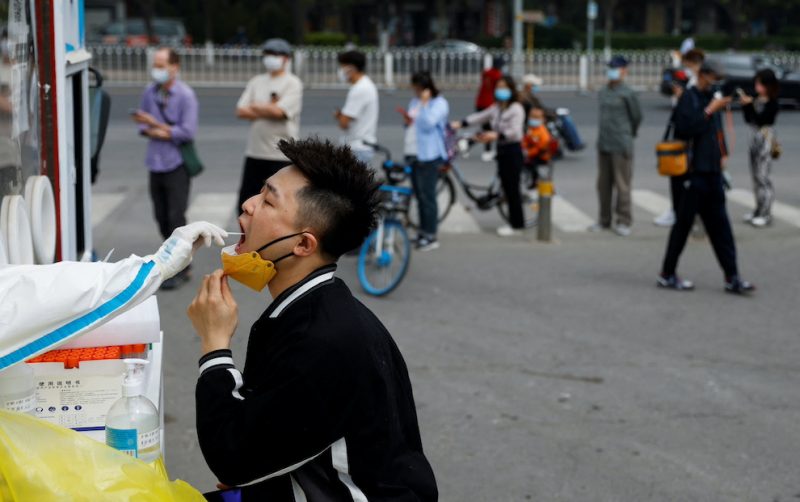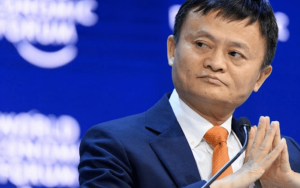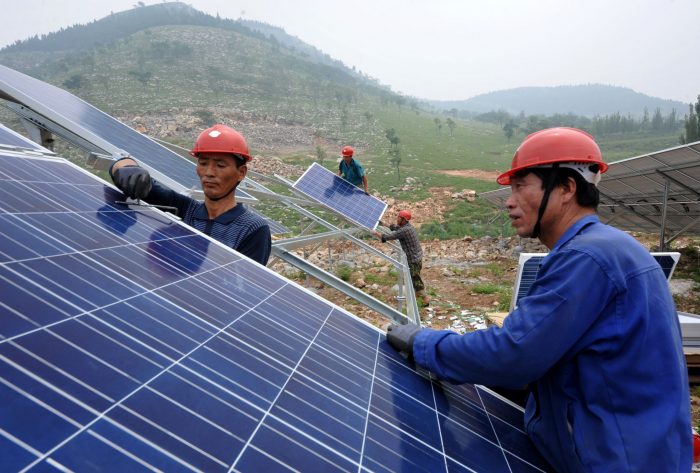A cohort of graduates larger than the entire population of Portugal is about to enter one of China’s worst job markets in decades at a time when youth unemployment at a record 18.4% is already more than three times China’s overall jobless rate.
A record 10.8 million new university graduates are poised to enter the jobs market this summer, adding to strains on a market that has contracted dramatically over the past six to 12 months amid an economic slowdown stemming from the country’s strict zero-Covid lockdowns.
China’s entry-level jobs market is even worse than during the 2008-09 global financial crisis, with new jobs down 20 to 30% from last year, says Rockee Zhang, managing director for Greater China at recruitment firm Randstad.
“This year is a low point, the lowest I’ve seen,” said Zhang, who has been a recruiter for two decades. Expected salaries are also 6.2% lower, according to Zhilian Zhaopin, another recruitment firm.
READ MORE: China Youth Unemployment to Hit 23%, Bank of America Says
Battered Economy
China’s Covid restrictions have battered an economy already slowing due to a property market downturn, geopolitical worries and regulatory crackdowns on tech, education, and other sectors.
Jenny Bai was among high-performing computer science students from different Chinese universities selected by a Beijing-based internet firm for a job upon graduation, following four rounds of arduous interviews.
But last month, the company told the students their contract offers were cancelled due to Covid headwinds and the bad state of the economy.
“I’m worried,” said Bai, who graduated this month and did not want to name the firm to stay on good terms. “If I can’t find a job, I’m not sure what I’ll do,” she said.
There is no script for how such high youth unemployment will affect Chinese society.
Struggling to find jobs goes against what educated young people have come to expect after decades of breakneck growth, and is awkward for China’s stability-obsessed Communist Party, especially in a year when President Xi Jinping is expected to secure a precedent-breaking third leadership term.
“The social contract between the government and the people was you stay out of politics and we will guarantee that every year you’ll do better than last year,” said Michael Pettis, Professor of Finance at Peking University. “So the concern is that once that guarantee breaks apart, what else has to change?”
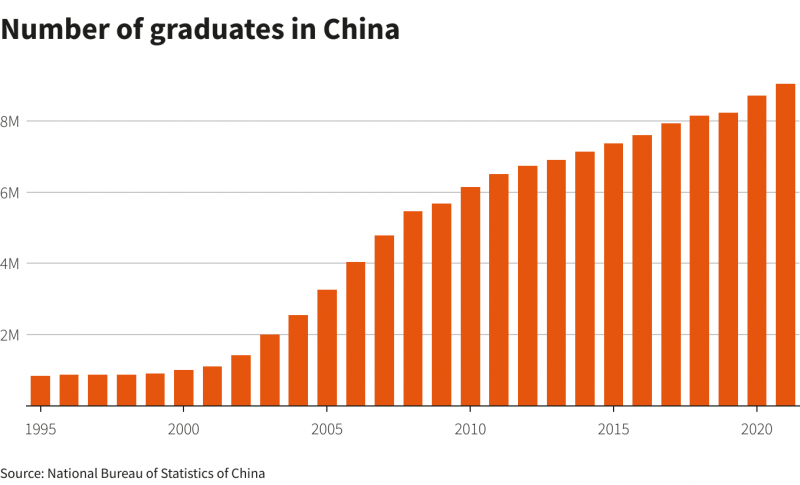
Top Priority
Premier Li Keqiang has said stabilising the job market for graduates is a top government priority. Companies granting internship posts to new graduates will receive subsidies, on top of other perks aimed at boosting employment in general.
Some regional governments have offered cheap loans to graduates looking to launch their own businesses. State-backed firms are expected to pick up some of the slack in private sector entry-level jobs.
China’s Ministry of Human Resources and Social Security and the Ministry of Education did not respond to requests for comment.

Tens of Thousands Lost Jobs After Crackdown
The tech sector has been a significant employer of many Chinese graduates, but this year the industry is trimming its workforce, recruiters say.
A regulatory crackdown prompted many of China’s tech giants including Tencent and Alibaba to make massive job cuts. Tens of thousands have lost their jobs in the sector this year, five tech industry sources said.
Job cuts varied between China’s roughly 10 biggest tech companies varied but averaged at about 10%, according to a report published in April by Shanghai-based Talent Assessment and Management Consulting group NormStar.
The companies did not respond to requests for comment.
14,000 Firms Shut After Gaming Licence Freeze
In April, a nine-month freeze on online gaming licences over violent content and other issues was lifted, during which time 14,000 firms in the industry shut.
Private education, another sector which drew regulatory scrutiny, parted with tens of thousands of workers as well. The largest firm in the industry, New Oriental, announced 60,000 layoffs.
New hiring is slow. A human resources manager at a Tencent business unit, who asked not to be named as they were not allowed to speak to the media, said they were looking to hire “a few dozen” new graduates, compared with about 200 a year previously.
“Internet companies have cut tonnes of jobs,” said Julia Zhu of recruitment firm Robert Walters. “If they have the financial resources to bring people in they are now opting for more experienced candidates rather than fresh graduates.”
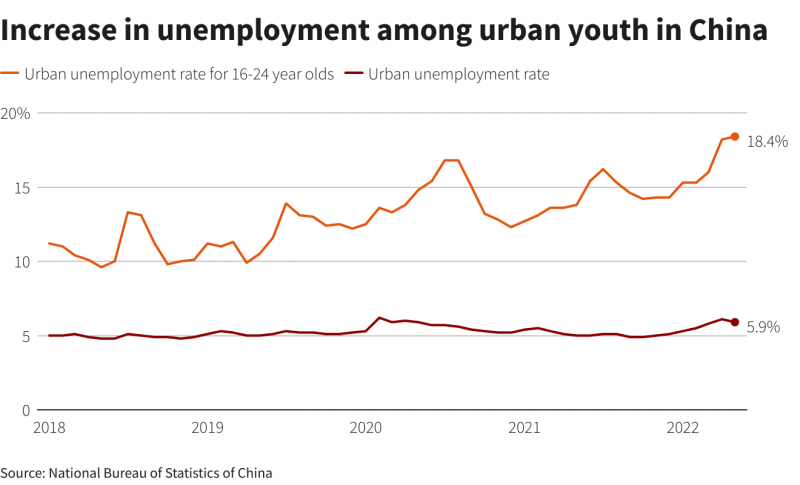
Golden Age of Hiring Has Ended
Jason Wang, a Beijing-based headhunter who has worked mostly with tech companies in recent years, is now recruiting mainly for state-backed telecommunication firms.
“The golden age of internet companies’ hiring sprees has ended,” Wang said.
In China, being jobless for some time after graduation is typically frowned upon by employers. Many families see it as a humiliation rather than bad luck with the economy.
Taking blue-collar jobs after getting a university degree also often draws disapproval, so to avoid long gaps in their CVs, record numbers are applying for post-graduate studies, official data show.
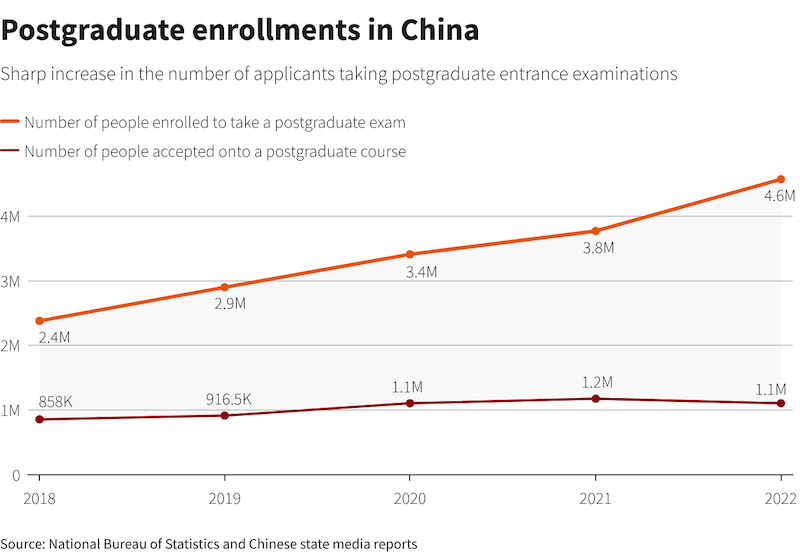
Vicente Yu graduated in 2021 but has been unemployed since losing his job at a media company late last year. His savings will cover another month or two of rent and basic expenses in the southern city of Guangzhou.
“My dad said you should never come home again, he said he should have raised a dog instead of me,” said the 21-year-old, who has been struggling with anxiety and sleep problems.
He spends his nights on social media platforms, where he finds other young people in similar situations.
“I look at all those people who are like me, who couldn’t find a job, and get some solace from it.”
• Reuters with additional editing by Jim Pollard




